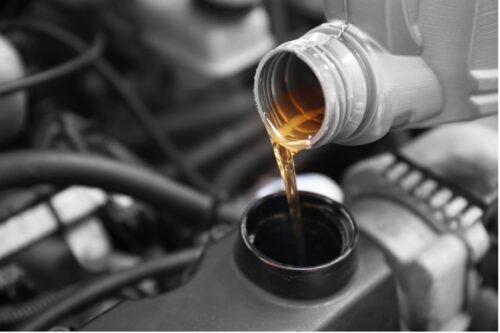Engine oil plays a crucial role in keeping your car’s engine running smoothly. It lubricates the moving parts, reduces friction, and helps to prevent wear and tear. However, over time, the oil level in your engine may drop, and it is important to know how much oil to add when topping it up.
So, how much should you top up engine oil? The answer depends on how low the oil level is. If the dipstick shows that the oil level is only halfway down, you will probably need around half a liter of oil. It is recommended to avoid overfilling the engine by pouring a little bit at a time and checking the dipstick after each addition to ensure you do not exceed the recommended oil level.
Adding too much oil can lead to excessive pressure inside the engine, which can cause leaks or even damage the engine. On the other hand, low oil levels can result in inadequate lubrication, leading to increased friction and potential engine damage. Therefore, it is crucial to maintain the oil level within the recommended range.
When considering how much oil to add, it is essential to note that every car has different requirements. The owner’s manual of your vehicle will provide details on the recommended oil type and the capacity of the engine. It is advisable to follow these guidelines to ensure optimal engine performance.
In general, a well-maintained car engine should not require oil top-up between service intervals. Regular oil changes are necessary to keep the engine running smoothly. However, if you notice that the oil level is consistently low, even after a recent oil change, it may be an indication of an underlying issue, such as an oil leak or excessive oil consumption. In such cases, it is best to consult a qualified mechanic to diagnose and resolve the problem.
It is important to note that topping up your oil should only be done when necessary and according to the manufacturer’s recommendations. Topping up the oil level above the maximum mark on the dipstick can lead to serious engine problems and should be avoided.
When adding oil to your engine, it is recommended to use the same type and viscosity as the existing oil. Mixing different types of oil can result in reduced lubrication efficiency and may cause damage to the engine. Additionally, it is advisable to check the oil level regularly, especially before long trips or when driving under demanding conditions.
Remember, engine oil is the lifeblood of your car’s engine. It is important to monitor the oil level and top it up when necessary to ensure optimal performance and longevity. Following the manufacturer’s guidelines and regular maintenance practices will help keep your engine running smoothly for years to come.

Credit: www.coxmotorparts.co.uk

Credit: www.windsornissan.com
Conclusion
Knowing how much engine oil to top up is crucial for maintaining the health and performance of your car’s engine. Adding the correct amount and type of oil will provide proper lubrication and prevent potential damage. Be sure to consult your vehicle’s owner’s manual for specific instructions and guidelines. Regularly checking the oil level and addressing any consistent oil loss will help ensure that your engine runs smoothly and efficiently.
Read More:


